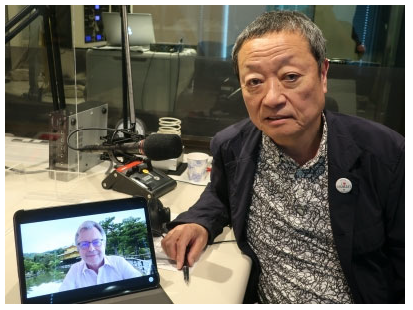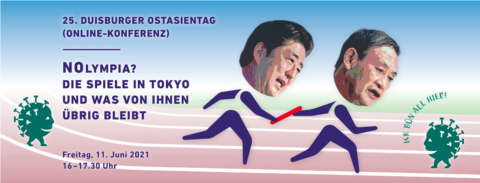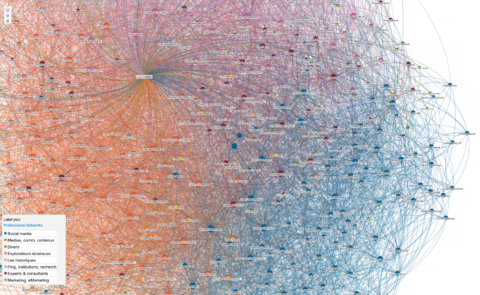イベント&アクティビティ
“Sophistication with understatement” – Franz Waldenberger interviewed on Japanese radio

DIJ director Franz Waldenberger shared his views on Japanese and German society in an interview series with Oguro Kazumi, the host of Lohas Talk on J-Wave radio. Franz introduced the institute, its research, and his own interests in Japanese society and economy. He revealed that he had a “positive culture shock” when he first came to Japan and that he was impressed with the unique “atmosphere”, importance of “human relations”, and “politeness”. The talk also touched upon women in politics, work-style, and work-life-balance. “In Germany, above all result matters but in Japan people are praised for their efforts”, he observed. On energy politics, Franz criticized that calculations of the costs of nuclear energy in Japan usually omit the costs for the disposal of nuclear waste. He praised the appeal of Japanese culture which, however, the Japanese themselves did not promote enough due to their attitude of “sophistication with understatement”. An audio file of the talk (in Japanese) is available here.
Next DIJ Method Talk: Kaitlyn Ugoretz on digital ethnography

While emic definitions of Shinto often describe the ritual tradition as the unique “indigenous faith of the Japanese people”, such claims are troubled by the growth of a “global Shinto.” The confluence of Japanese strategies for repositioning the nation as being of global import over the last few decades have rendered Shinto attractive and available to non-Japanese people around the world. Based on several years of multi-sited digital ethnographic research, in this presentation Kaitlyn Ugoretz will examine the development of transnational, digital Shinto communities on social media over the last twenty years. She will conclude with a reflection on the importance of digital ethnography as method in response to obstacles to traditional research during a global pandemic. Details and registration here
Speaker:
Kaitlyn Ugoretz, University of California, Santa Barbara
“No word on vaccines, no testing at all.”

Several international media have interviewed DIJ deputy director Barbara Holthus about Olympic volunteering and the risks of holding the Tokyo Olympics amidst the ongoing pandemic. Barbara appeared on the Canadian broadcaster CBC’s News Morning Show (video), the Australian news programme Ticker News (video), and CNN’s news show The Lead (video). Barbara criticized the lack of vaccination opportunities for volunteers and said that it was too dangerous to hold the Olympics this year. Barbara was also interviewed by German news agency DPA and her statements appeared in several German news outlets, including Zeit online and FAZ online (in German). For more information on research related to the Olympics, see the DIJ’s special project on the Tokyo Olympics and the open access book publication Japan Through the Lens of the Tokyo Olympics.
What remains of the Tokyo Games? DIJ researchers at INEAST East Asia Day
 DIJ deputy director Barbara Holthus and principal researcher Torsten Weber will participate in this year’s online INEAST East Asia Day at Duisburg-Essen University on June 11. The event “NOlympia? The Tokyo Games and what remains of them” will discuss the fate of the world’s biggest sports festival in times of a pandemic. Other participants are Katharina Bauernschmidt (Paracanoeist, Team Germany Paralympics) and Martin Fritz (Japan-based journalist and author). The event will be moderated by DIJ alumnus Axel Klein (Professor for Social Sciences of East Asia/Japanese Politics, Duisburg-Essen University). Details and registration here
DIJ deputy director Barbara Holthus and principal researcher Torsten Weber will participate in this year’s online INEAST East Asia Day at Duisburg-Essen University on June 11. The event “NOlympia? The Tokyo Games and what remains of them” will discuss the fate of the world’s biggest sports festival in times of a pandemic. Other participants are Katharina Bauernschmidt (Paracanoeist, Team Germany Paralympics) and Martin Fritz (Japan-based journalist and author). The event will be moderated by DIJ alumnus Axel Klein (Professor for Social Sciences of East Asia/Japanese Politics, Duisburg-Essen University). Details and registration here
DIJ Web-Forum on Data and Values in Japan and Germany

Data are widely considered to be the “oil” of the digital economy. But whereas the concept seems essential and ubiquitous, social, economic, and legal aspects associated with the meaning, ownership, exchange, use, and protection of data remain highly contested even among countries with similar economic and political systems like Japan and Germany. Our speakers will present the main legal regulations and public discourses related to the concept of data in Japan and Germany. In the discussion, we will try to pinpoint major differences in the understanding of data and their implications for the ownership, protection, use, and international exchange. Details and registration here
Speakers:
Axel v.d. Bussche, Taylor Wessing
Stefan Heumann, Stiftung Neue Verantwortung
Hitomi Iwase, Nishimura & Asahi
Koichi Sumikura , National Graduate Institute for Policy Studies (GRIPS)
moderated by Franz Waldenberger, German Institute for Japanese Studies
“You cannot not compare.” Concluding contribution to Comparing Comparisons blog

In their concluding contribution to the Comparing Comparisons blog, DIJ director Franz Waldenberger and James D. Sidaway (Professor of Political Geography, NUS) emphasize the invaluable benefits from comparing as a method in the humanities and social sciences. “You can do it wrong or be seduced by too easy comparisons, but you cannot easily do without some”, they conclude. Their article “Who compares? The commodification and decolonization of comparison” is the final contribution to the blog which originates from the international and interdisciplinary meeting by scholars affiliated with the Max Weber Foundation Research Group at the National University of Singapore and DIJ researchers in Tokyo in December 2019. Previous contributions offer variations of the blog’s theme and draw examples from the authors’ respective areas of specialization, including anthropology, ethnography, Japanese studies, political geography, economics, cross-cultural studies, business and management research.
New on YouTube: Roundtable ‘Belt and Road Initiative as Method’

What are broader theoretical implications of China’s Belt and Road Initiative (BRI)? Members of the Max Weber Foundation Research Group on Borders, Mobility and New Infrastructures convened the Roundtable Discussion ‘BRI as Method: Forging Theoretical Agendas’ to discuss the significance of China’s controversial project for the geography of knowledge production. A video of the event is now available on the DIJ’s YouTube channel, including links to the abstracts of the papers by the panelists Tim Bunnell, Yang Yang (both ARI), Darren Byler, Tim Oakes (both University of Colorado Boulder), Chong Ja Ian, and Woon Chih Yuan (both NUS). The panel was convened by Shaun Lin, Naoko Shimazu, and James D Sidaway. The research group, located at the NUS in Singapore, was founded in 2017 and is supported by the DIJ and the Max Weber Foundation. More information here.
Public talk ‘Tokyo Olympics – An Uphill Battle’ with Barbara Holthus

What are the latest developments and challenges that overshadow the Tokyo Olympics? Join DIJ deputy director Barbara Holthus, Olympic expert Vanessa Åsell Tsuruga, and special advisor to former Japanese Prime Minister Shinzo Abe, Tomohiko Taniguchi, for an online discussion of the risks and opportunities ahead and their impact on Tokyo and Japan. The event ‘Tokyo Olympics: An Uphill Battle’ is hosted by the Japan Center at the Institute for Security & Development Policy (ISDP), a Stockholm-based non-profit and non-partisan research and policy organization. The webinar will be moderated by Jon Thunqvist, Senior Research Fellow at the ISDP, and takes place on Monday, 31 May, 10.00-11.00 (CEST) / 17.00-18.00 (JST). Registration is required via the ISDP.








 Open Access
Open Access
